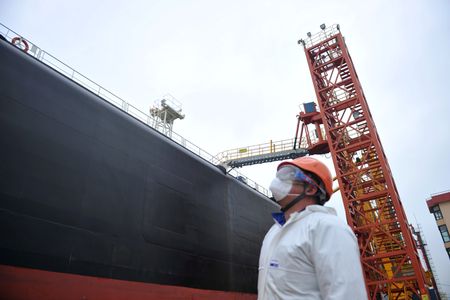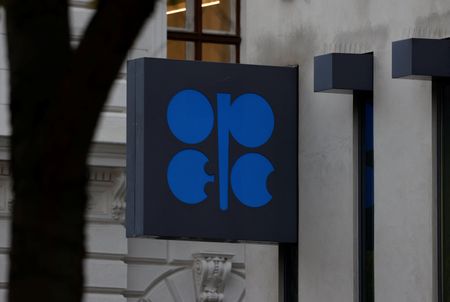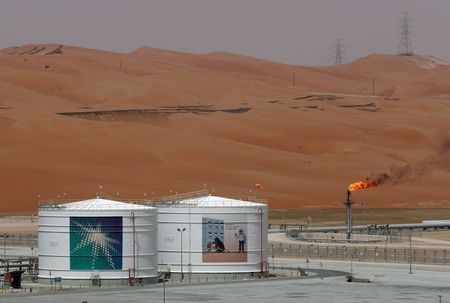By Sam Li and Lewis Jackson
BEIJING (Reuters) -China’s independent teapot refiners are staring down a fresh hit to profits because of new rules introduced this month to crack down on untaxed refined oil, analysts say, as the sector struggles with tepid fuel demand and overcapacity.
Refiners are required to pay consumption taxes both when they import feedstock such as fuel oil and also on the refined products they produce, but evasion is widespread.
Industry estimates suggest 30-40% of all gasoline and diesel refined is sold tax-free, according to calculations cited by state oil giant Sinopec and Chinese consulting firm GL Consulting.
New rules implemented by the Ministry of Commerce will scrap paper ledgers and require refiners, petrol stations and other operators to report purchases, sales and inventories online each month. The State Council, China’s cabinet, flagged the changes in February.
Many independent refiners, especially smaller players, rely in part on tax dodges to pad out margins under pressure from falling demand and will be hit hardest, China-based GL Consulting said.
Removing that competitive edge over larger or state-owned refiners that are tax compliant will in turn spur consolidation, dovetailing with Beijing’s push to reduce overcapacity, said Dongyuan Cao, associate law professor at the University of Science and Technology Beijing.
“The regulation is a vital component of the broader ‘anti-involution’ governance push for a refining sector experiencing ‘low-price competition’,” explained Cao. Involution is a buzz word in China that refers to competition so fierce it becomes self destructive.
The goal of the changes is to collect more tax revenue and eliminate illegal petroleum products, Sinopec researcher Qi Mengdi wrote in Petroleum Business News.
The Ministry of Commerce and the State Taxation Administration did not immediately respond to questions.
OPERATING AT A LOSS
China has launched campaigns against tax evasion in the teapot hub of Shandong province before but refiners backslid when inspections ended, Sinopec said in a report published in September.
Experts said the new rule will be more effective because it introduces a system, not a one-off campaign.
The stakes are highest for the smallest teapots, which the government has been slowly squeezing for years with higher taxes.
The teapot sector ran at less than half its capacity in the first half of this year as a weak economy and the rapid adoption of electric vehicles hit fuel demand.
Some smaller teapots will start operating at a loss as a result of the change, Li Xiang, a researcher with state oil company CNPC wrote in an article this month.
For refiners, skirting the consumption tax can lift margins on diesel by about 600 yuan ($84.26) per ton (7.45 barrels), said two sales managers, one at a refined product sales company and another at a private refinery. For gasoline, the lift is around 1,900 to 2,000 yuan, they said.
Shandong independent refineries processing imported crude oil earned profit averaging 177 yuan ($24.86) per ton in the first half of 2025, Chinese consultancy JLC estimated.
($1 = 7.1207 Chinese yuan renminbi)
(Reporting by Sam Li and Lewis Jackson in Beijing; Editing by Saad Sayeed)








